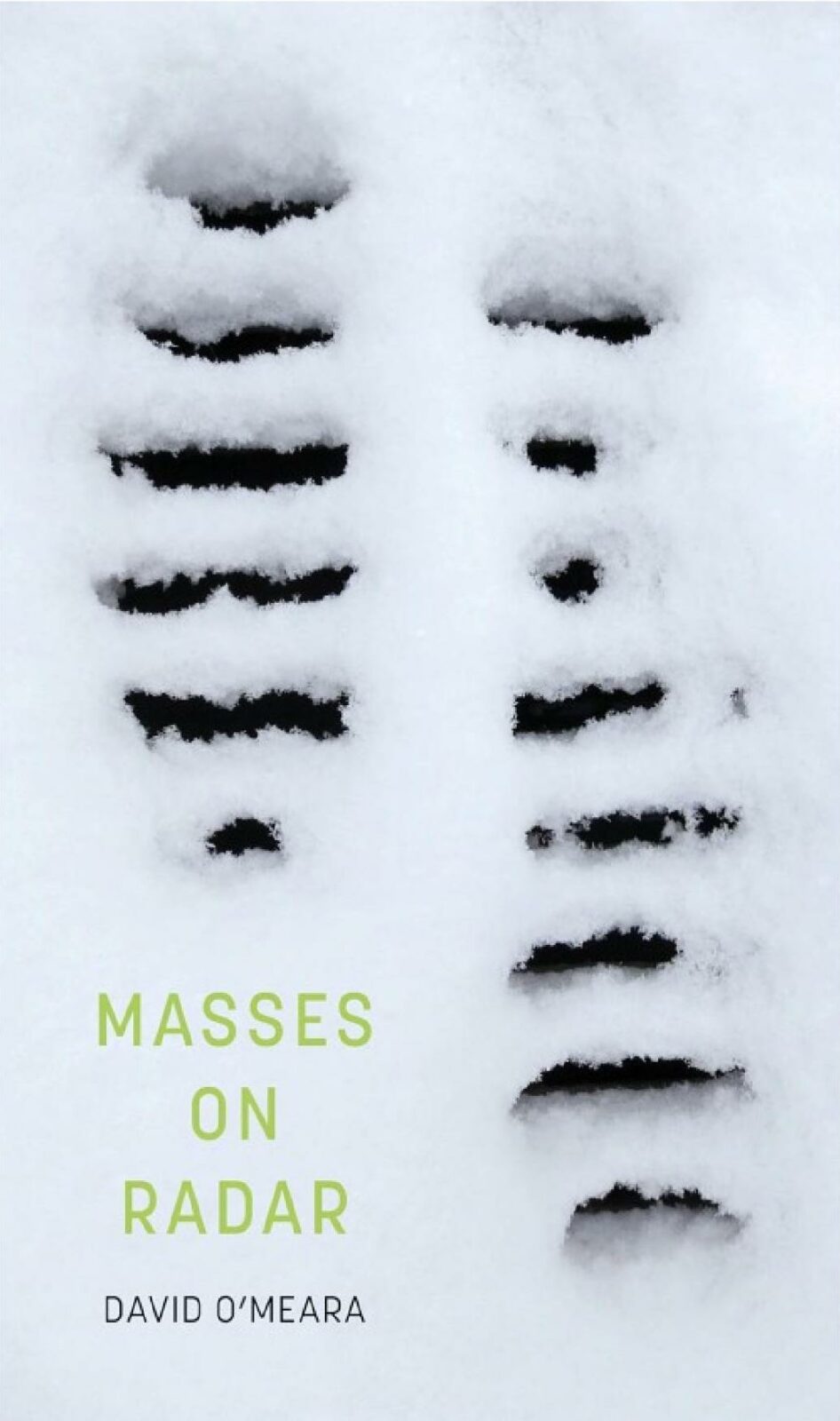In David O’Meara’s collection of poetry, Masses on Radar, every poem contains flashes of literary gold; not the gold of glitter but real literate gold, words in combinations never before seen but that shine with brilliance once revealed. By the way, the word “Masses” in the title does not refer to anything religious, but instead refers to the blurred images of our everyday reality that appear on the poet’s radar.

The richness of the language alone turns each everyday experience into a seminal, life-changing event. Thus, a visit to a church with relics, under the sun’s “cropped monstrance” turns O’Meara from a mystic into a cynic (“I Collect the Five Thousand Ribs of Jesus Christ”). And, in “I Carry a Mouse to a Park Beside the Highway,” the still-living mouse that he has trapped is described as “a poor change purse of bones,” signalling not only the mouse’s tininess and fragility but the value of its life and, not least of all, his own generous and compassionate nature.
O’Meara often reveals a skill at subtle forms of rhyme and metre. In “The Moirai,” a series of fourteen poems of fourteen lines each (plus one prologue poem) written in memory of Elise Partridge, a poet and friend who passed away, he uses understated slant rhyme in the eight couplets of each poem, bringing the idea of the sonnet to another level. He further structures the poems by ensuring each first line is the same as the last line of the previous poem. He reveals his feelings here and his own way of expressing them: “I’ll hope to shape a decent phrase / to honour what you loved” and “You honoured time with eloquence / and wonder…”
In Section 3 of the collection, O’Meara includes three separate poems with the same title: “I Arrive Too Late So Watch the Footage Over From the Beginning.” This multiple title approach is unheard of and yet signals that this poet is not going to simply stick to the rules. In the last of these three poems, he follows the journey of a plastic bottle dropped in the desert and its breakdown into micro shards of plastic. This poem is an incredible view into what happens in nature to our waste of single-use plastics, concluding with these powerful lines: “the albatross with a bottle cap and lighter / found among its bleached bones, two / plastic straws twisted in its gizzard / our brief stay noted in a finch’s Jurassic eye.”
This review must conclude with further examples of O’Meara’s delightful and unusual use of language. A few sample lines and phrases from separate poems: “…any snowglobe / needs wrist-shaken Richters at the onset…” (“Distant”); “The landfill will outlast the luxury” (“Ahead”); “The cold holds houses like cubes in a tray” (“I Surf the Sodium Light”); “Better a bag of lemons than / Febreze” (“Puzzle”). And finally this line, notable for its incredibly rich sounds: “The sea’s fringed blows shaking breakers toward the shingle” (I Arrive Too Late So Watch the Footage Over From the Beginning”).
Altogether, Masses on Radar is an excellent collection of skillfully word-smithed poems from one of Canada’s finest poets.
Bios

Mark Frutkin
Mark Frutkin has published ten novels, four collections of poetry, and three works of non-fiction. In 2007, his novel, Fabrizio’s Return, won the Trillium Prize for Best Book in Ontario and the Sunburst Award. In 1988, his novel, Atmospheres Apollinaire, was short-listed for the Governor General’s Award for Fiction. His most recent poetry collection, Hermit Thrush, (Quattro, 2015) was a finalist for the Ottawa Book Awards, and his most recent novel was titled The Artist and the Assassin (Porcupine’s Quill). He has written numerous reviews and essays for Arc and was once its editor. [updated in 2023]

